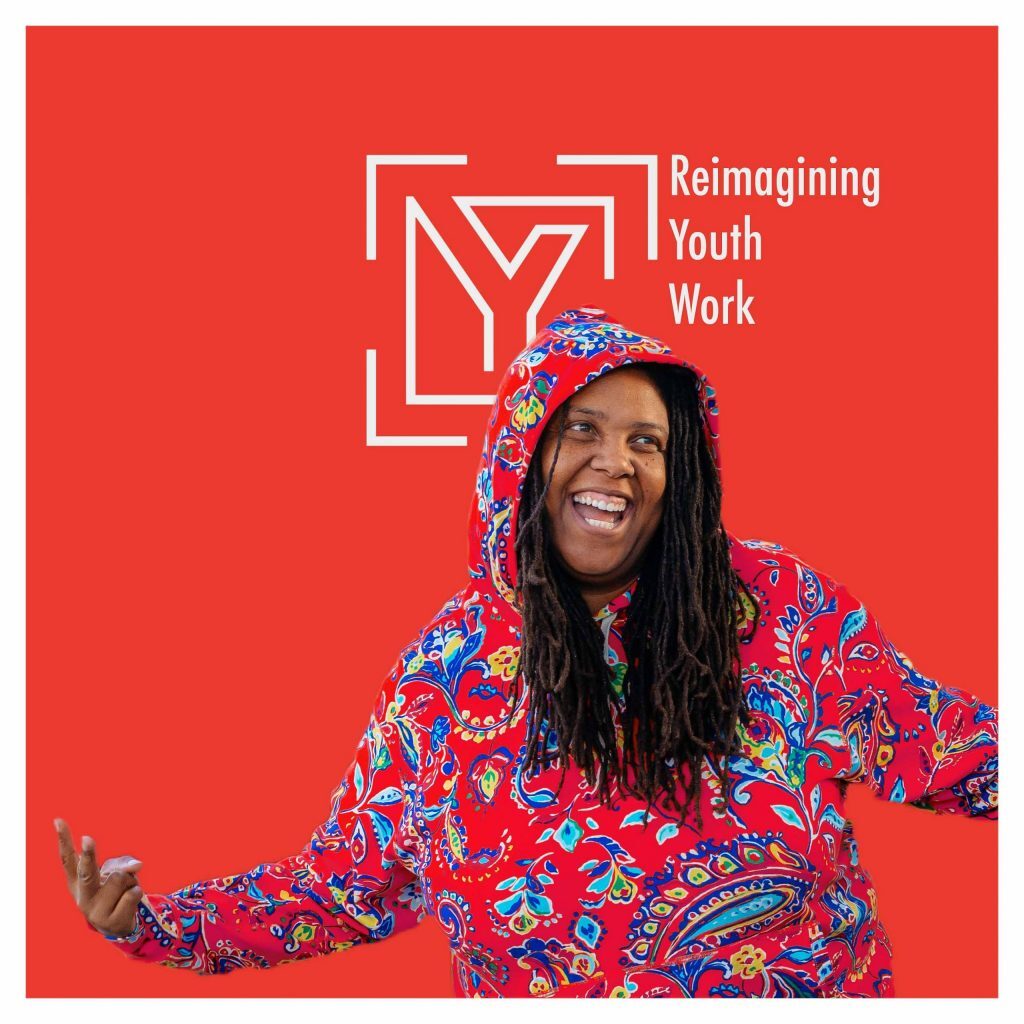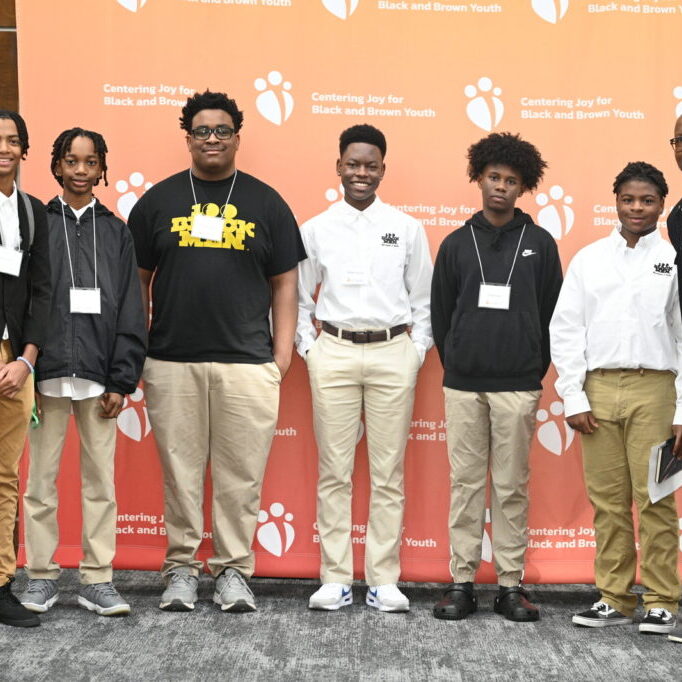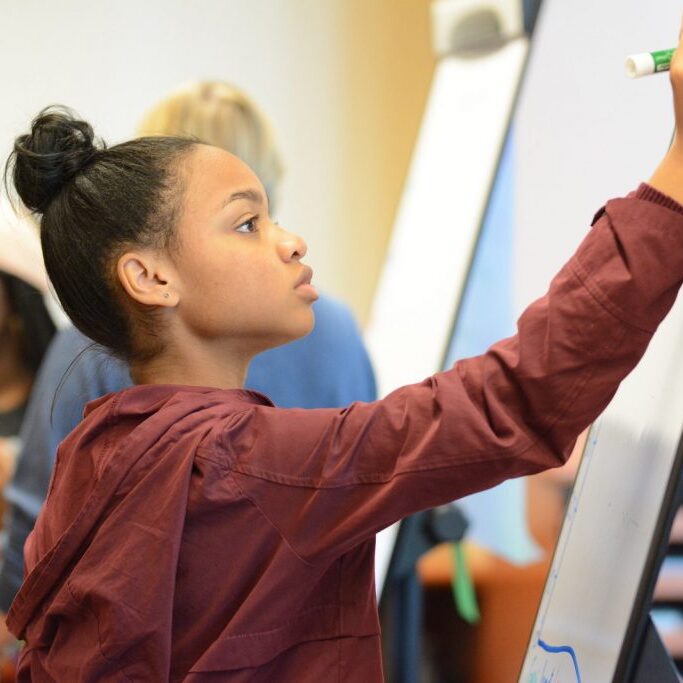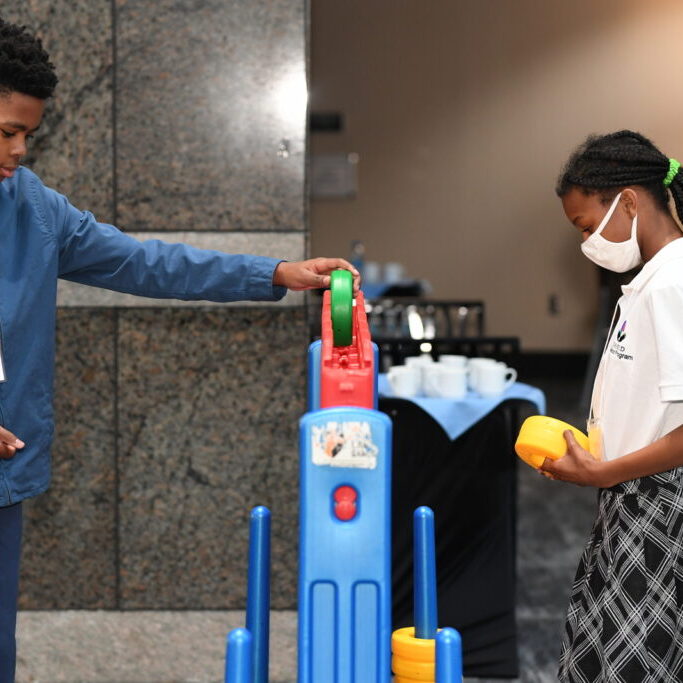
Healing-Centered Mentoring™
The demand for child mental health services, including those provided by psychologists, counselors, and social workers, has long exceeded the supply; this trend is expected to continue or worsen unless substantial structural changes are made in how mental health services are provided (Society for Community Research and Action, 2021).
Mentoring can be used as a strategy to reduce mental health stigma and support a wide range of meaningful outcomes for young people. While some mentors are trained to establish and maintain a relationship with their mentees, they do not receive formal training on targeted skills practice for psychological and behavioral health concerns. Thus, there is a critical need to establish an alternative approach to mentoring that targets mental health challenges in a clinically meaningful, scalable, and sustainable way.
Youth Mentoring Collaborative will train mentoring practitioners to support clinical services or deliver light-touch mental health interventions through Healing-Centered Mentoring™ (HCM). The HCM framework will build the capacity of mentoring organizations to increase the number of youth receiving evidence-based mental health skills training through mentoring, simultaneously reducing the burden on existing systems of care and reducing the barriers to mental health services, particularly for BIPOC youth.
The Healing-Centered Mentoring™ Fellows are a dynamic, multidisciplinary group of leaders dedicated to improving the implementation of specific mentoring standards and practices through the increased use of evidence-based practices and technology that protect and promote the mental health and psychosocial well-being of youth. Use the button below to learn more about our first two cohorts.

"Authenticity In the Work"
Dr. Torie Wieston-Serdan, scholar-practitioner who coined the term "critical mentoring", hosts a podcast called Reimagining Youth Work. On September 23rd, 2020, she interviewed Youth Mentoring Collaborative's President & CEO Atrayus Goode about his mentoring journey and authenticity. Listen to their episode below.
RACIAL EQUITY
Youth in mentoring relationships are oftentimes told that anyone who works hard, studies, and makes good decisions will get ahead. But for Black and Brown youth, structural barriers based on race often create unique life challenges that mentoring alone cannot account for, such as the following:
- Black youth in the US experience, on average, five experiences of racial discrimination per day (Journal of Applied Developmental Psychology, 2019)
- Black youth, particularly black males, are four times more likely to be suspended from school than white youth for the same behaviors (Arends, 2019)
- Black youth are underrepresented in healthcare due to clinical racism. Statistics of ADHD diagnosis, death by suicide, and misdiagnosis are much higher than reported (Calhoun, 2021)
- Black youth are four times as likely to be held in juvenile detention than white youth, with numbers exacerbated by the pandemic (Jovner, 2021). “The Prison Policy Initiative reported that 42% of boys and 35% of girls in detention were Black. Black youth are only 14% of the under 18 population.” (Changa, 2021)
The failings of Black and Brown cultures are often used to explain individual and collective hardships. To that end, people of color are required to conduct themselves “appropriately” to earn respect in mainstream culture—messages that frequently show up in mentoring relationships. The problem with this respectability politics narrative is that it reinforces pejorative messages of anti-blackness and fails to account for the impact of systemic and institutionalized racism on people of color.
Engagements with YMC include an exploration of racial equity, how anti-blackness and institutionalized racism can manifest in the context of mentoring organizations, and what is necessary to build organizations that counter negative messages about Black and Brown youth that stem from racist history and belief systems.
LGBTQ+ Youth
Every day, thousands of lesbian, gay, bisexual, transgender, and queer (LGBTQ) youth in the United States navigate discriminatory systems that can lead to negative health and life outcomes. Consider the following examples:
- Suicide is the leading cause of death among queer youth nationally. LGBTQ+ youth are three times more likely than non-LGBQT+ youth to contemplate suicide, make a suicide plan, harm themselves, or attempt suicide (The Williams Institute, 2020)
- Around 1 in 4 LGBTQ+ youth experience homelessness, yet only 10% of the population experiencing homelessness are youth (Children’s Hospital Boston, 2014)
- 15 states, including North and South Carolina, have or are considering banning gender-affirming care for queer youth, which would impact approximately 60,000 youth directly (The Williams Institute, 2022)
- Over 70% of LGBTQ+ youth say they experience discrimination based on their sexual and gender expression (The Trevor Project, 2019)
Engagements with YMC elevate the importance of empowering LGBTQ+ youth to achieve their full potential—despite the obstacles often put before them—to make a significant impact on society.
I believe that a specific type of mentorship is necessary to produce the most transformative and equitable outcomes for historically underrepresented minority students (HURMS). That type of mentorship is critical mentorship.
Buffie Longmire-Avital

RESOURCE LIBRARY
Our curated resource library is a collection of best practices for youth mentoring programs, including guides, toolkits, and other evidence-based practices that support high-quality mentoring.

Apply for a Consultancy
Research shows that programs can nurture stronger, longer-lasting mentoring relationships by committing to quality improvements. Click the button to learn more about YMC's capacity-building consulting process.

NEWS & EVENTS
Follow along with our current affairs, including guides, conversations, op-eds, and other news on our blog.